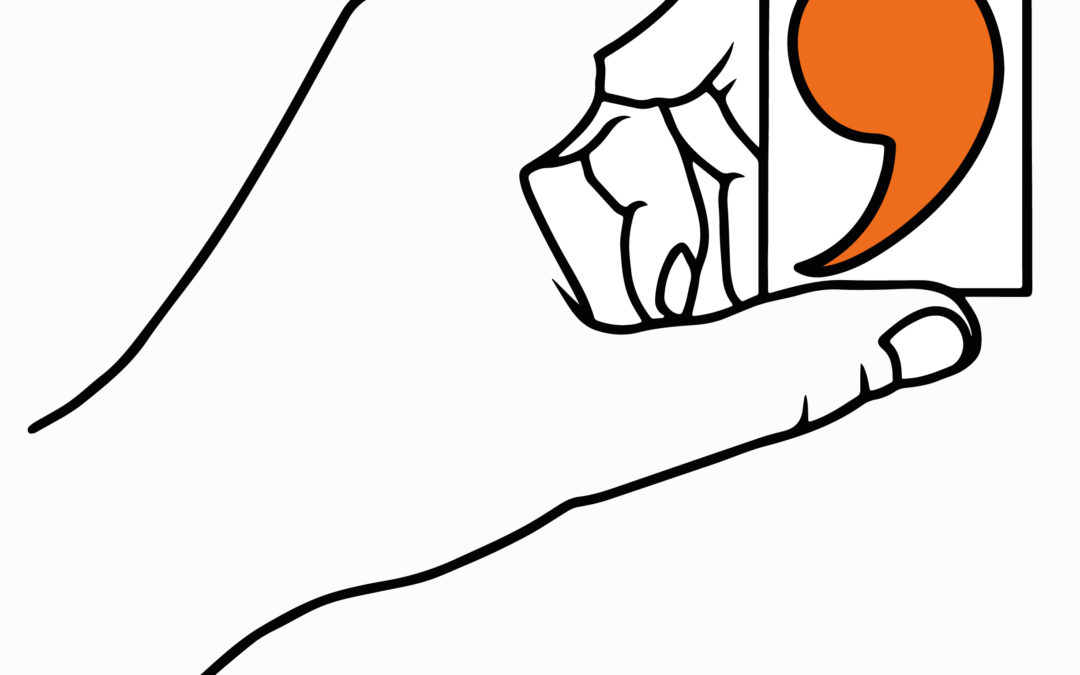Note: because of the extreme popularity of this post, I’ve made it available as a PDF download.
Way back in the olden days when American schools regularly taught grammar, many students learned that a comma should automatically be placed before a person’s name or the title of a book, magazine, etc.
In reality, however, that’s not quite true. The inclusion of a comma actually depends on the circumstances, and having a comma vs. no comma can dramatically change the meaning of a sentence.
First, to be clear, when a name or title appears in the middle of a sentence (that is, not as the first or last word), it should not follow a single comma.
Incorrect: Last night, James and his friend, Peter went to see a movie.
So if your English teacher told you to always put in that comma before the name “because that’s just what you do,” I’m sorry to inform you that s/he did not really understand punctuation.
In truth, commas around names and titles are used for a very particular reason, namely to indicate that the name or title is not essential to the meaning of a sentence. In most cases, it is fairly straightforward to figure out when commas are needed: you simply cross out the name or title and check whether the remaining sentence make grammatical sense. (This use is covered more thoroughly in a separate post.)
Incorrect: Italian-American film director, Martin Scorsese, has directed dozens of films over the course of his career.
Crossed out: Italian-American film director, Martin Scorsese, has directed dozens of films over the course of his career.
Because the statement Italian-American film director has directed dozens of films over the course of his career clearly does not make grammatical sense, the commas are not needed.
Correct: Italian-American film director Martin Scorsese has directed dozens of films over the course of his career.
In other cases, however, a name or title can be written either with or without commas. This where things get trickier.
Generally speaking, you can use the following rule to decide:
No commas = one of many
Commas = the only one
Let’s look at some examples.
With Commas: Last night, James and his friend, Peter, went to see a movie.
The commas around the word Peter tell us that we are talking about one specific friend, and that the friend is named Peter. In some contexts, this type of construction would make perfect sense.
Correct: James had the evening off from work, so he texted a friend who was also free that night. After some back and forth, James and his friend, Peter, decided to see a movie.
In this case, the commas make sense because the friend has already been mentioned in the previous sentence. As a result, the name is not absolutely essential to the meaning; rather, it simply serves to provide additional information.
Taken out of context, however, the statement with the commas would imply that James had only one friend, and that the friend was named Peter. It would still be grammatically acceptable, but it would probably not be what the writer intended to imply.
Now let’s look at the sentence without commas:
No Commas: Last night, James and his friend Peter went to see a movie.
This sentence means that James has multiple friends, and that last night he went to see a movie with the friend named Peter. If no context was provided for the sentence, this version would make more sense.
One more example:
With Commas: Michael Pollan’s book, In Defense of Food, has caused many people to examine closely the ingredients of the foods they eat.
Taken out of context, this sentence implies that In Defense of Food was Michael Pollan’s only book—something that is not in fact the case. Although the statement is grammatically acceptable, it is not true.
No Commas: Michael Pollan’s book In Defense of Food has caused many people to examine closely the ingredients of the foods they eat.
This version means that Michael Pollan has written multiple books, one of which is titled In Defense of Food. This version is both grammatically acceptable and true.

if they had a little exercise or worksheet in the end, it would have been better.